Search Results
Showing results 61 to 80 of 91
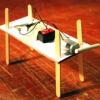
Minibot
Source Institutions
In this activity, learners build a mini dancing robot. This engineering activity introduces learners to electricity, circuits, switches, conductivity, and motors.
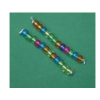
Protein Bracelets
Source Institutions
In this activity, learners use beads, which represent amino acids, to create protein bracelets. Learners examine the relationship between amino acids and proteins.
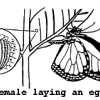
Rearing Monarchs
Source Institutions
As a long-term project, you can rear monarch butterflies at home or in a classroom.
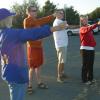
Does the Moon Rotate?
Source Institutions
This fun and simple hands-on astronomy activity lets learners make 3-dimensional models of the Earth and Moon.
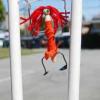
Gymnast
Source Institutions
In this physics activity, learners build a toy with a figure that spins around like a gymnast on the high bar.
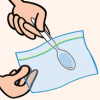
Glitter Slime
Source Institutions
In this activity on page 8 of the PDF, learners make a slimy substance very similar to mucus, and sprinkle it with glitter to imitate the way that allergens are trapped.
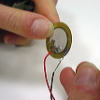
Electric Cup Guitar
Source Institutions
Make a one-string "guitar" by stringing a cup with some fishing line. You amplify the plucking of the string by placing a piezo contact microphone and mini battery powered amplifier inside the cup.
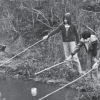
Attract a Fish
Source Institutions
This outdoor activity/field trip requires a place where minnows swim, such as a local pond or brook.
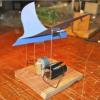
Motor Bird
Source Institutions
In this activity, learners build a bird that flies in place with help from a motor, wire, and some straws.
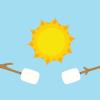
Cooking With the Sun
Source Institutions
In this activity, learners build a simple solar oven out of household materials to melt chocolate and marshmallow between graham crackers--known as s'mores.
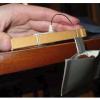
How Many Pennies?
Source Institutions
In this activity (pages 13-14), learners investigate the properties of smart materials, which are materials that respond to things that happen around them.
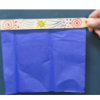
Draft Detectives
Source Institutions
In this two part activity, learners become draft detectives by constructing their own draft catchers to detect drafts around windows or doors.
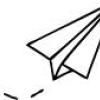
Wind Tunnel
Source Institutions
Scientists use enormous wind tunnels to test the design of planes, helicopters, even the Space Shuttle.

Mix It Up
Source Institutions
In this math lesson, learners are introduced to proportional reasoning through modeling, sharing, and questioning techniques.
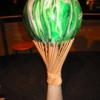
Trophy Triathlon
Source Institutions
In this activity, learners are challenged to design and construct a trophy for prize-winning sports equipment.
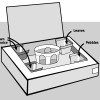
There’s No Place Like Home!
Source Institutions
In this activity, learners make their own bug boxes and test the habitat preference of selected "minibeasts" (bugs).
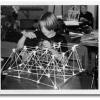
Skewers and Garden Poles
Source Institutions
In this activity, learners build scaled-down structures and cantilevers in a series of "building out" challenges with bamboo skewers and tape.
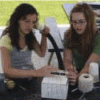
Headphone Helper
Source Institutions
In this design challenge activity, learners add headphones to a previously built instrument (see "Build a Band" activity) to make it easier to hear.
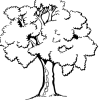
Tree-mendous Plots
Source Institutions
In this math lesson, learners record and graph plant growth and interpret data. Learners plant seeds, and once the seeds sprout, record the change in height of the plants for several days.
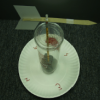
Design and Build a Wind Vane
Source Institutions
In this activity, learners design and build a simple wind vane —one of the oldest kinds of weather tools— and use it to show wind direction.
